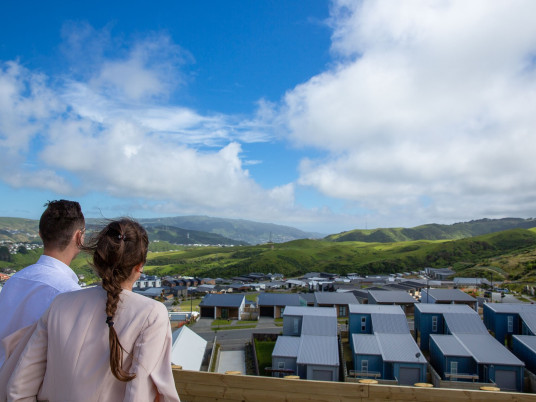Budget 2024 - Delivery of 500 Community Housing Provider homes

Published 27 Jun 24
Budget 2024 allocates $140 million of new funding from the 1 July 2025 to 30 June 2027 financial years for a total of 1500 new social housing places, to be operated by Community Housing Providers.
The criteria for the new places funded through Budget 2024 has been reset. The first 500 additional social housing places are being allocated based on the objectives of; maximising value for money, contributing to the Government's target of reducing emergency housing, and improving housing in historically under-served regions.
Allocation framework for social housing places
The investment criteria has been designed based on several housing needs indicators, such as the social housing register, emergency housing and motel use, and housing affordability.
As a result, the priority locations for the first 500 new social housing places are Gisborne and the wider Tairāwhiti region, Hamilton, Napier and Hastings, Rotorua, Tauranga, and we will consider social housing projects in Auckland, Christchurch, and Wellington that directly support a reduction in emergency housing.
Please see the below Allocation Framework that covers the investment criteria and delivery expectations for the priority locations.
New social housing places to support emergency housing reduction target
The Government has set a target of achieving a 75 per cent reduction in households in emergency housing by 2030 compared to December 2023. To support this we have introduced a new Priority One category for families with dependent children in emergency housing for more than 12 weeks, enabling them to access safe, social housing more quickly. More information can be found on our website: Government Target 8 – Fewer people in emergency housing
This means the additional social housing places are expected to support the emergency housing reduction target.
Limiting Redirects
(Updated on 18 July)
HUD is also focusing our efforts on delivering newly built social housing places to increase housing supply. From July 2024 HUD is not accepting any new redirects unless by exception. This means CHPs need to cap their current number of redirect tenancies as the maximum.
This allowance ensures tenancies and properties can still be replaced when they become vacant or unavailable over time. However, CHPs will not be able to increase their net number of new redirects.
If CHPs have new build developments, historically brought on under their “Open-Term” agreements, please contact your HUD Business Development Manager to discuss how these may fit within the allocation framework. Alternatively, you can contact public_housing_panel_procurement@hud.govt.nz
For more information on redirects visit the partnering for new housing opportunities webpage
Active Purchasing Model
A new active purchasing approach will also likely be used by HUD for the delivery of the next 1,000 social housing places. This approach will be developed during the second half of 2024 for ministerial approval. Active purchasing will include establishing some strategic partnerships with key providers in the immediate term, with further information on this expected around August / September 2024.
We will communicate further information about allocation of the 1000 places in October 2024.
More information
If you have any questions or need further information, please contact your Relationship Manager at HUD or email info@hud.govt.nz
Additional information
Allocation Framework for Budget 2024 'Maintaining Momentum' Places
Objectives
- Maximising value for money from Government investment
- Reducing reliance on emergency housing and motel accommodation
- Taking a balanced approach between achievability, and building capability in historically underserved places
Investment Criteria
- Prioritising places where there are high rates of emergency housing and/or motel accommodation (including Transitional Housing), to support progress towards Government’s target
- Prioritising investments that are within cost-level expectations or represent good value for money given their benefits
- Prioritising investments that will provide offsetting government savings in other areas (e.g. by reducing EHSNG utilisation)
- Prioritising investments in places where social housing will make the biggest difference and is the appropriate solution
- Achievability: Across the investments made, ensuring there is an appropriate balance between lower-risk projects with high-deliverability, and projects with higher risk, but potentially greater long-term value
Priority Locations
| Locations (based on territorial boundaries) | Type of home needed |
| Gisborne and the wider Tairāwhiti region | All types of homes required |
| Hamilton | All types of homes required |
| Napier (and Hastings) | Smaller homes required |
| Rotorua | Smaller homes required overall, but family homes needed in the short-term to reduce CEH |
| Tauranga | All types of homes required |
| Projects in Auckland, Christchurch, and the Wellington metropolitan area, that support a reduction in emergency housing | Overall smaller homes required, but in Auckland and Christchurch family homes are needed in the short-term to reduce emergency housing use |